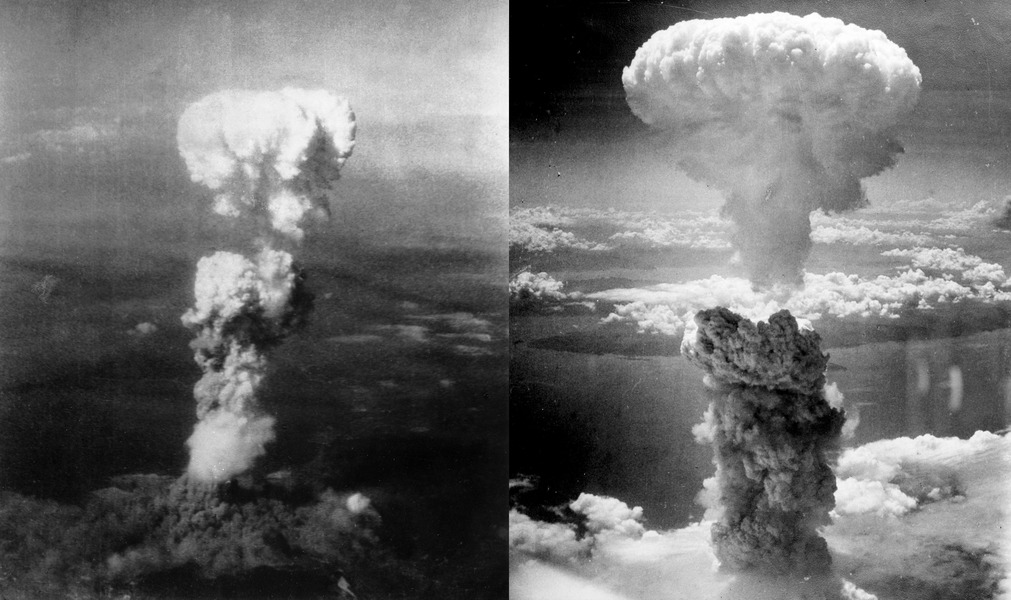On September 26, the civilized world celebrates the Day of Struggle for the Complete Elimination of Nuclear Weapons.
The main goal of this date is to draw the attention of the global community to the necessity of global nuclear disarmament and to inform the public about the benefits of eliminating nuclear weapons. Since the first atomic bombs were dropped on Hiroshima and Nagasaki, humanity has lived under the Damocles’ sword, fearing a nuclear catastrophe capable of destroying all life on planet Earth. One of humanity’s primary tasks is to achieve peace and security on the planet.
The complete elimination of nuclear weapons in all countries of the world is one of the fundamental and oldest goals of the United Nations. This topic was raised in the very first resolution of the General Assembly in 1946, and starting from 1959, it was included in the agenda of the General Assembly alongside universal and complete disarmament. It also became the main topic of review conferences held by the United Nations since 1975 with states parties to the Treaty on the Non-Proliferation of Nuclear Weapons.
The hard-earned progress over many decades in preventing the use, proliferation, and testing of nuclear weapons is today being nearly undone. The nuclear risk has risen to a level not seen since the Cold War. The war in Ukraine has brought the concept of nuclear war back into global discourse.
In 1994, Ukraine was persuaded that the world was tired of the terrifying threats of a world war and chose not to solve problems by the force of weapons. Before renouncing nuclear weapons, Ukraine possessed the third-largest nuclear arsenal in the world. Officially, it lost its nuclear status in 1996, although steps in that direction had been taken since the early 1990s. Ukraine joined the Treaty on the Non-Proliferation of Nuclear Weapons and signed in 1994 the Budapest Memorandum on Security Assurances, better known as the «Budapest Memorandum.» According to the Budapest Memorandum, the country voluntarily gave up its nuclear weapons in exchange for security assurances.
Feeling emboldened and resorting to nuclear potential, Russia insidiously began a full-scale war against the country to which it had once guaranteed protection against external aggression. The Kremlin’s nuclear arsenal was rattled from the very beginning of the full-scale invasion of Ukraine. Moscow failed to capture Kyiv in three days as originally planned, and veiled threats regarding the possible use of nuclear weapons emerged in the rhetoric of Russian leaders. The Russian president repeatedly mentioned the «rising» threat of nuclear war, and each time, it found resonance in the speeches of Russian propagandists and political leaders. The Deputy Chairman of Russia’s Security Council and former President of Russia, Dmitry Medvedev, commenting on the supply of military aid to Ukraine, threatened, «The defeat of a nuclear power in an ordinary war can provoke the beginning of a nuclear» war.
Every mention by Russia of using an atomic bomb sounds like a sign of desperation. Putin refuses to accept defeat. Faced with a series of humiliating retreats and high combat losses, Putin sees in nuclear threats an opportunity to regain some respect for the «power of Russia.»
The transition to terror methods against the entire world marked the final failure of plans for a victorious invasion of the neighboring country. Nuclear blackmail by the West is Putin’s last card up his sleeve. Russia has decided to «strengthen» Belarus by providing it with tactical nuclear weapons. The agreement between Russia and Belarus allowing the deployment of Russian tactical nuclear weapons on Belarusian territory will lead to a dangerous escalation of conflict. There is also a real threat of Russia’s support for Iranian and North Korean nuclear programs. Putin plays the role of a history maker and dreams of a new world order, aligning with North Korea and Iran. The behavior of the «rat cornered in the corner» becomes unpredictable.
In 1996, the International Court of Justice of the United Nations confirmed that the threat and use of nuclear weapons, in general, are incompatible with international laws regulating wars, including international humanitarian law. Today, Russia is deliberately and brazenly committing crimes, completely ignoring all existing norms of this law.
Nuclear weapons pose a threat to all of humanity. From a means of deterring global war, they have become an instrument of blackmail. Only the complete denuclearization of Russia guarantees world security. And the only absolute guarantee that nuclear weapons will never be used is their complete elimination in all countries of the world.

